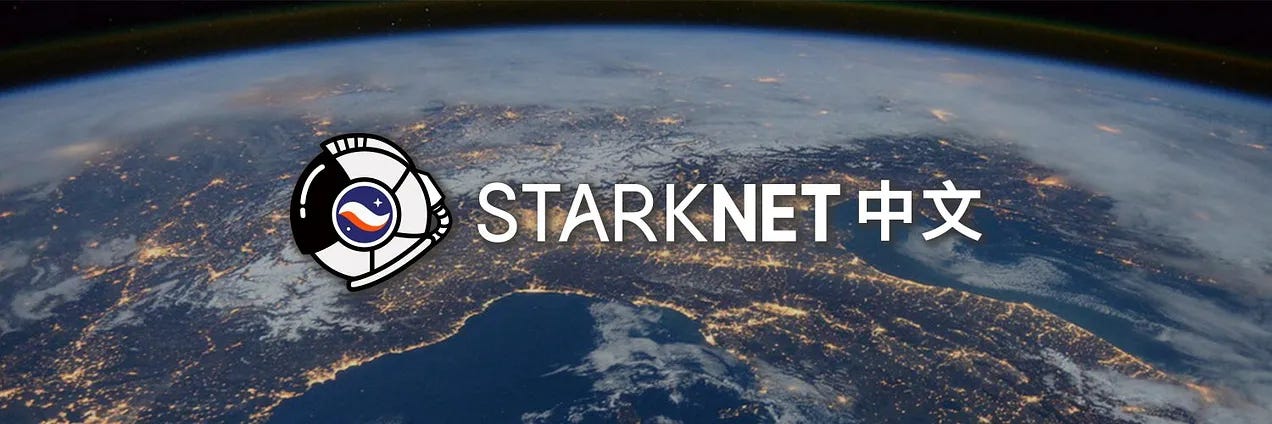Interview with Tarrence from Cartridge, a Starknet Gaming Console - By the Chinese Starknet Community (English Version)
Enjoy this written interview with Tarrence, founder of Cartridge.
Cartridge Interview - English
This Interview was carried out by the StarkNet Chinese Community
Let’s give them a follow here and have a look at their linktr.ee.
Experience
Q: When did you begin your journey in crypto? And how?
A: I have been building in the crypto space since 2015, primarily in Eth.
Q: What other projects have you got involved with?
A: Among other projects, I was a core contributor to The Dope Wars, which is what started my journey in Web3 gaming.
On Cartridge
Q: What’s Cartridge? How did you come up with the idea of building Cartridge?
A: Cartridge is building autonomous worlds and infrastructure for Starknet games. While working on Dope Wars, we realized that in order to build great Web3 games, teams were going to need a ton of tools and infrastructure that didn’t exist. Back in 2022, to build a game on Starknet, dev teams had to come up with their own frameworks and write a lot of low-level Cairo, but all of that is changing with Cartridge and Dojo.
Q: How does session key work? Is it unique on Starknet?
A: Sessions allow players to seamlessly play on-chain games by authorizing the Cartridge Controller to approve in-game transactions. Having to approve transactions every time a player interacts with the chain create a clunky experience that pulls the player out of the game world - sessions fixes that. Sessions are not necessarily unique to Starknet, but they are uniquely enabled by Account Abstraction.
Q: What are WebAuth and Passkeys? How are they used with Account Abstraction?
A: WebAuthn is a new security standard that allows players to securely generate a keypair via biometric (Fingerprint / Face ID) that can be used for authentication and signing transactions across devices. Apple and Google’s adoption of Passkeys make it easy to manage and recover credentials. Cartridge’s use of WebAuthn creates a much more seamless experience, removing the need to understand and store a seed phrase or password.
Q: Where is my private key stored in Cartridge?
A: In Cartridge’s implementation of WebAuthn, the private key is store in your device’s secure enclave, which can be a phone or computer.
Q: Is Cartridge safe for general users?
A: Yes, Cartridge is safe for general users. WebAuthn is a widely-adopted new approach to device security that is considered safer than a traditional password approach to account management.
Q: How do you think Cartridge is going to facilitate the adoption of onchain games?
A: The Cartridge Controller and platform make it easy and fun to onboard and start playing on-chain games, which is a great start; however, our team is also contributing a lot of resources to the development of the Dojo framework, which is creating an ECS framework for builders who want to create Starknet games. By creating standardized tooling and infrastructure for Starknet Gaming teams, we intend to be a catalyst for the space, and as a part of that effort, we are beginning the developmet of our own game called Roll Your Own (RYO).
Q: What’s your future plan for Cartridge?
A: Our team will be simultaneously working on 1) the Cartridge Controller (cartridge.gg), 2) the Dojo game engine, and 3) our own game Roll Your Own (RYO) for the next two quarters. In addition, we will be focused on creating community in the Starknet Gaming space and bringing more development teams into the ecosystem.
On DAO
Q: Could you share some of your DAO-experience?
A: The Dope Wars was early in its use of a DAO and created a fund that it used to issue grants for various projects in the ecosystem. The DAO model worked well for Dope Wars, but it also introduced a complex set of incentive structures that sometimes made decision-making difficult.
Q: How do you think about DAOs in gaming development? Are there any challenges in implementing DAOs on Gaming? How do we overcome them?
A: DAOs are a great way to involve a community and a player-base in the decision-making process for a game; however, the process of building a game can be difficult, and the introduction of a large set of stakeholders can slow down the process. DAOs can work well, but they are not one-size-fits all. Teams should be intentional about creating DAOs and think clearly about the type of organization they want to create and what its goals are.
On Starknet and development
Q: Why did you choose Starknet? What are you most excited about it?
A: Starknet has the greatest technological potential to provide the kind of infrastructure that is necessary in order to build fully on-chain games of the scale and magnitude that we would like to see. Cairo 1.0 is proving to be an excellent developer experience, and we’re exited to see what becomes possible when it is live on mainnet.
Q: If you could imagine the future of Starknet, how could it be like in 5 to 10 years?
A: We believe that the autonomous worlds that will become ubiquitous in 5 or 10 years will be the ones that are founded today. These early teams that are the pioneers of what is possible on Starknet will ultimately define what the future looks like.
Q: what’s your suggestions to devs who are interested in Starknet and intend to learn Cairo?
A: There are a ton of great resources out there to help you get started with Starknet and Cairo. Look on the official twitter page for retweets from partners and builders that are posting helpful materials and get involved with some of the projects like Dojo that are leading the space in terms of Cairo development.

